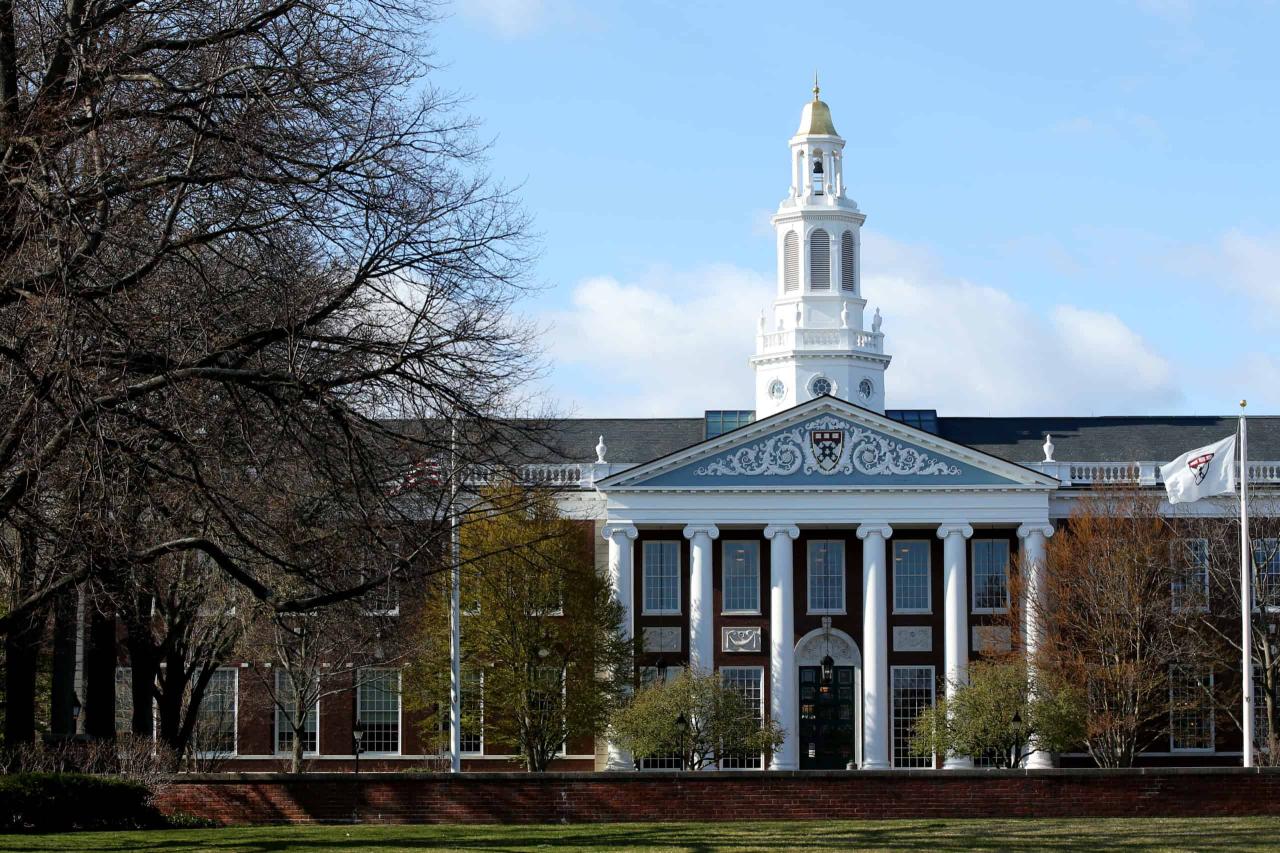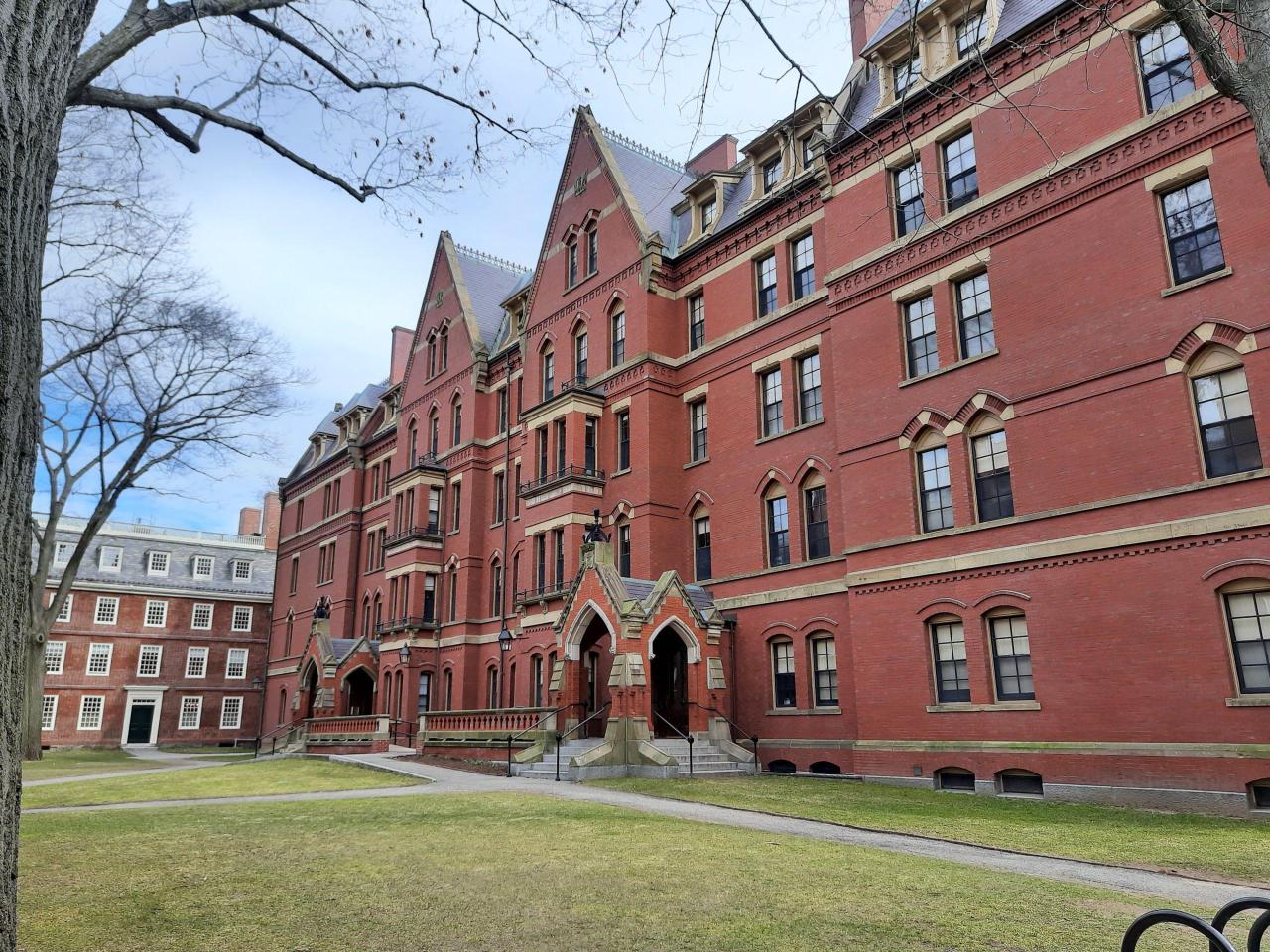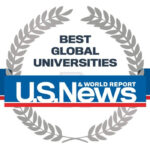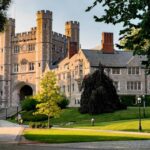News Harvard University takes center stage, a constant presence in global discourse, reflecting the institution’s immense impact on research, education, and public policy. From groundbreaking scientific discoveries to thought-provoking debates on critical societal issues, Harvard University’s influence extends far beyond its hallowed halls.
This exploration delves into the historical significance of Harvard University in the news landscape, examining how its presence has evolved over time. We will explore the university’s research and innovation, its relationship with the media, and its role in shaping public opinion. We will also examine the news coverage of student life, campus culture, and Harvard’s involvement in public policy and international affairs. Finally, we will consider the challenges and controversies that have faced the university, and how it is navigating the evolving media landscape.
Harvard University in the News
Harvard University, a prestigious institution renowned for its academic excellence and historical significance, has long been a fixture in the news landscape. From groundbreaking research and influential alumni to controversies and scandals, Harvard’s presence in the news has evolved over time, reflecting its impact on society and the world at large.
Notable News Events
Harvard University has been involved in a multitude of notable news events throughout its history. These events have shaped the university’s public image and influenced public discourse on higher education, research, and social issues.
- The Salem Witch Trials (1692): Harvard University played a role in the Salem Witch Trials, with some of its graduates participating in the trials and even providing theological justifications for the accusations. This event, though a dark chapter in American history, highlighted the university’s influence on the intellectual and social landscape of the time.
- The Civil Rights Movement (1950s-1960s): Harvard University was at the forefront of the Civil Rights Movement, with students and faculty actively participating in protests and advocating for racial equality. The university’s commitment to social justice and its role in fostering activism during this period were widely reported.
- The Vietnam War (1950s-1970s): Harvard University was a focal point of anti-war protests and demonstrations during the Vietnam War. The university’s student body was deeply divided over the war, and the university’s response to the protests and the war itself became a subject of national attention.
- The Watergate Scandal (1972-1974): Harvard University was directly involved in the Watergate Scandal, with former students and faculty members playing key roles in the investigation and subsequent impeachment of President Richard Nixon. The scandal’s impact on Harvard’s reputation and the university’s involvement in the events were widely reported.
Evolution of Harvard’s Presence in the News
Harvard University’s presence in the news has evolved significantly over time, reflecting the changing dynamics of higher education, research, and societal concerns.
- Early Years (17th-19th Centuries): In the early years of Harvard’s existence, news coverage focused primarily on academic achievements, notable faculty members, and the university’s role in shaping the intellectual landscape of the young nation.
- 20th Century: The 20th century witnessed a shift in news coverage, with greater attention paid to social and political issues, including the university’s involvement in the Civil Rights Movement, the Vietnam War, and the Watergate Scandal.
- 21st Century: In the 21st century, news coverage of Harvard University has become more diverse and multifaceted. It includes reports on groundbreaking research, technological advancements, controversies surrounding admissions and financial aid, and the university’s role in addressing global challenges such as climate change and inequality.
Research and Innovation at Harvard

Harvard University, a global leader in education and research, consistently pushes the boundaries of knowledge and innovation. Its faculty and researchers make groundbreaking discoveries across a wide range of disciplines, contributing significantly to advancements in science, technology, medicine, and the humanities.
Impact of Harvard Research on Global Issues
Harvard’s research has a profound impact on addressing global challenges. For instance, researchers at the Harvard T.H. Chan School of Public Health have made significant contributions to understanding and combating infectious diseases. Their work on HIV/AIDS, Ebola, and other pandemics has helped to develop effective prevention strategies, treatments, and vaccines. Furthermore, Harvard researchers are at the forefront of climate change research, developing innovative solutions to mitigate its effects and adapt to its consequences. Their work on renewable energy, sustainable agriculture, and carbon capture technologies is crucial in the fight against climate change.
Harvard Research in Different Fields
Harvard University’s research spans a vast spectrum of disciplines, attracting global attention and driving advancements in various fields.
Medicine and Healthcare
Harvard researchers are making groundbreaking discoveries in medicine and healthcare, leading to new treatments and therapies for various diseases. For example, researchers at the Harvard Medical School have developed innovative gene editing technologies, such as CRISPR-Cas9, which hold immense potential for treating genetic disorders and developing personalized medicine.
Technology and Engineering
Harvard engineers and computer scientists are pushing the boundaries of technology, developing innovative solutions in artificial intelligence, robotics, and quantum computing. For example, researchers at the Harvard John A. Paulson School of Engineering and Applied Sciences are developing new materials and devices with unprecedented properties, such as flexible electronics and biocompatible implants.
Social Sciences and Humanities
Harvard researchers in the social sciences and humanities are exploring complex societal issues, contributing to our understanding of human behavior, culture, and history. For example, researchers at the Harvard Kennedy School are studying the impact of globalization, political polarization, and economic inequality, providing valuable insights for policymaking.
News Coverage of Harvard Research
Harvard’s research receives extensive coverage in leading news outlets worldwide, highlighting its impact on various fields. News coverage often focuses on groundbreaking discoveries, innovative technologies, and solutions to pressing global issues. For example, the development of the CRISPR-Cas9 gene editing technology by Harvard researchers received widespread media attention, emphasizing its potential to revolutionize medicine.
Harvard University and the Media Landscape
Harvard University, with its long history, prestigious reputation, and influential research, enjoys a prominent place in the media landscape. The institution’s activities, from groundbreaking research to policy initiatives, frequently capture the attention of journalists and the public alike.
Harvard University’s Relationship with Major News Outlets, News harvard university
The relationship between Harvard University and major news outlets is multifaceted. Harvard serves as a source of news and information for reporters covering a wide range of topics, including education, science, technology, and public policy. The university’s press office actively engages with journalists, providing access to experts, research findings, and press releases. This collaborative relationship ensures that Harvard’s work is disseminated to a broad audience.
Harvard University’s Influence on Public Discourse and Opinion
Harvard University plays a significant role in shaping public discourse and opinion. Its faculty members are frequently sought after as experts on a variety of issues, and their research findings often inform public policy debates. The university’s reputation for academic excellence lends credibility to its pronouncements, making its perspectives influential in shaping public understanding and opinion.
Prominent Journalists and Publications Covering Harvard University
A number of prominent journalists and publications regularly cover Harvard University. These include:
- The New York Times: The Times has a dedicated section for education, which frequently features stories about Harvard. Their coverage often focuses on the university’s academic achievements, research breakthroughs, and policy initiatives.
- The Washington Post: The Post also covers Harvard extensively, with a particular focus on its impact on public policy and its role in shaping national debates.
- The Boston Globe: As a local newspaper, the Globe provides in-depth coverage of Harvard’s activities, including its relationship with the surrounding community and its impact on the Boston economy.
- The Chronicle of Higher Education: The Chronicle is a leading publication for higher education news, and it provides comprehensive coverage of Harvard, including its faculty, research, and student life.
These are just a few examples of the many journalists and publications that cover Harvard University. Their coverage helps to keep the public informed about the university’s activities and its impact on the world.
Student Life and Campus Culture at Harvard: News Perspectives
The news often portrays Harvard University as a hub of academic excellence, but it also reflects the vibrant and dynamic student life that thrives within its walls. From student activism to campus events, the news provides a window into the diverse experiences and perspectives of Harvard’s student body.
News Coverage of Student Activism and Campus Events
The news frequently covers student activism at Harvard, highlighting issues that students are passionate about. These issues range from social justice and environmental concerns to academic freedom and campus policies.
For instance, in 2020, the news widely covered student protests against racial injustice following the death of George Floyd. Students organized demonstrations, demanding institutional change and accountability from the university. These protests highlighted the intersection of student activism with broader societal issues.
Campus events, from lectures and conferences to concerts and sporting events, also receive media attention. These events often showcase the diverse talents and interests of the student body, fostering a sense of community and intellectual engagement.
The news coverage of these events can contribute to the university’s reputation and attract prospective students. However, it can also raise awareness about student concerns and push the university to address them.
Impact of News Coverage on Student Life and Campus Culture
News coverage can significantly impact student life and campus culture at Harvard. It can shape public perception of the university and its students, influencing how the outside world views the institution and its role in society.
“The media plays a crucial role in shaping public opinion about Harvard University and its students. This coverage can have both positive and negative implications for the campus community.” – Professor Sarah Jones, Harvard University
News coverage can also influence student activism and campus events. Students may be more likely to engage in activism or organize events if they know that their actions will receive media attention. This can create a sense of empowerment and encourage students to speak out on issues they care about.
News Portrayal of Challenges and Opportunities Faced by Harvard Students
The news often portrays the challenges and opportunities faced by Harvard students. It can highlight the academic pressure and intense competition that students experience, as well as the financial burden of attending an elite institution.
However, the news also often showcases the unique opportunities that Harvard provides, such as access to world-renowned faculty, cutting-edge research facilities, and a vast network of alumni.
For example, news stories often feature Harvard students who are making groundbreaking discoveries in their fields or who are pursuing innovative projects that address global challenges. These stories highlight the positive impact that Harvard students have on the world.
The news can also raise awareness about the challenges faced by underrepresented groups at Harvard, such as students from low-income backgrounds or students of color. This coverage can encourage the university to implement policies that promote diversity and inclusion on campus.
Harvard University and Public Policy

Harvard University, a renowned institution for academic excellence, has consistently played a significant role in shaping public policy debates through its research, expertise, and influence. Its faculty, researchers, and alumni have contributed to policy discussions on a wide range of issues, impacting both national and international agendas.
Harvard University’s Involvement in Public Policy Issues
Harvard University’s involvement in public policy issues is multifaceted, encompassing various fields and disciplines. The university’s research centers, think tanks, and academic departments actively engage in policy-relevant research, providing evidence-based insights and recommendations to policymakers.
- Health Policy: Harvard’s renowned medical schools and public health institutions have been at the forefront of addressing critical health policy issues, such as access to healthcare, healthcare costs, and public health emergencies. For example, the Harvard T.H. Chan School of Public Health has conducted extensive research on the Affordable Care Act, offering valuable insights into its implementation and impact.
- Education Policy: Harvard’s Graduate School of Education is a leading institution in education research and policy analysis. Its faculty and researchers have contributed significantly to debates on educational reform, teacher training, and student achievement. Harvard’s research on early childhood education has influenced policy initiatives aimed at improving early learning opportunities.
- Economic Policy: Harvard’s economics department and its affiliated research centers have conducted groundbreaking research on economic growth, inequality, and fiscal policy. The university’s expertise in macroeconomics and development economics has informed policy discussions on issues such as globalization, trade, and international development.
- Environmental Policy: Harvard’s Environmental Policy Program and the Harvard Environmental Law Program have been instrumental in advancing environmental policy research and advocacy. The university’s research on climate change, sustainability, and environmental justice has contributed to policy initiatives aimed at mitigating climate change and protecting the environment.
News Coverage of Harvard University’s Involvement in Public Policy
News media outlets frequently report on Harvard University’s involvement in public policy debates, often highlighting the university’s research, expertise, and influence on policy decisions.
- The New York Times: The New York Times regularly features articles on Harvard University’s research and its impact on public policy. For instance, in 2021, the newspaper published an article titled “Harvard Researchers Offer a Blueprint for a Green New Deal,” highlighting the university’s contributions to the debate on climate change and economic policy.
- The Washington Post: The Washington Post also provides extensive coverage of Harvard University’s involvement in public policy. In 2020, the newspaper published an article titled “Harvard Study Finds Rising Inequality in America,” showcasing the university’s research on economic inequality and its implications for policy.
- The Wall Street Journal: The Wall Street Journal often reports on Harvard University’s research related to business and economic policy. In 2019, the newspaper published an article titled “Harvard Economists Urge Tax Cuts for Businesses,” highlighting the university’s influence on tax policy discussions.
Influence of Harvard University’s Research on Public Policy Debates
Harvard University’s research and expertise have a significant influence on public policy debates, often shaping the discourse and informing policy decisions.
- Evidence-Based Policymaking: Harvard’s research provides policymakers with evidence-based insights and recommendations, enabling them to make informed decisions based on rigorous analysis and data. For example, Harvard’s research on the effectiveness of different educational interventions has influenced policy decisions on school reform and teacher training.
- Policy Advocacy: Harvard’s faculty and researchers often engage in policy advocacy, using their expertise to advocate for specific policy changes. For instance, Harvard’s climate change research has led to advocacy efforts aimed at promoting sustainable energy policies and reducing greenhouse gas emissions.
- Public Discourse: Harvard University’s research and public statements often contribute to public discourse on policy issues, raising awareness and shaping public opinion. For example, Harvard’s research on health disparities has contributed to public awareness of the social determinants of health and the need for policies to address health inequities.
Harvard University and the Global Stage
Harvard University, with its long history of academic excellence and global engagement, plays a significant role in international affairs. Its influence extends beyond its campus walls, impacting international news stories, shaping global discourse, and fostering collaborations with international institutions.
Harvard University’s Involvement in International News Stories
Harvard University’s global presence often makes it a focal point in international news. Here are some examples:
- Research on Global Issues: Harvard researchers contribute significantly to the understanding of global challenges. For example, the Harvard Humanitarian Initiative has been involved in research on humanitarian crises, such as the Syrian Civil War, and its findings have been widely reported in international media.
- International Policy Discussions: Harvard faculty members, such as experts in international relations and economics, are frequently quoted in international media outlets on global policy issues. Their insights and perspectives shape public discourse on topics ranging from trade agreements to climate change.
- Global Leadership Programs: Harvard offers programs that prepare future leaders from around the world. These programs, such as the Kennedy School of Government’s Executive Education programs, attract international attention as they aim to address global challenges and foster international cooperation.
The Impact of Harvard University’s Global Presence on International Affairs
Harvard University’s global presence has a multifaceted impact on international affairs:
- Thought Leadership: Harvard University is a leading source of research and analysis on global issues. Its faculty members are influential thinkers who contribute to shaping international policy and discourse.
- Capacity Building: Through its international collaborations and educational programs, Harvard University helps build capacity in developing countries by providing training and expertise in various fields, including public health, education, and sustainable development.
- Diplomacy and Dialogue: Harvard University fosters dialogue and understanding between different cultures and countries through its academic programs, research collaborations, and international conferences. This contributes to building bridges and promoting peaceful resolutions to global conflicts.
Examples of Harvard University’s International Collaborations
Harvard University collaborates with numerous international institutions on research projects, educational programs, and policy initiatives. These collaborations are often highlighted in international news:
- The Harvard Global Health Institute collaborates with the World Health Organization (WHO) on research projects related to global health challenges, such as the fight against infectious diseases and the development of new vaccines.
- The Harvard Business School partners with international business schools to offer joint programs and exchange faculty members.
- The Harvard Kennedy School collaborates with governments and international organizations to develop policy solutions for global challenges, such as climate change and poverty reduction.
Controversies and Challenges
Harvard University, despite its prestigious reputation, has faced a number of controversies and challenges over the years. These events have often made headlines, sparking public debate and raising questions about the institution’s values and practices. This section delves into some of the most notable controversies and challenges, examining the news coverage and their impact on Harvard’s public image.
Admissions and Affirmative Action
Harvard’s admissions practices have been a subject of controversy for decades. The university has been accused of discriminating against Asian American applicants in favor of other minority groups. In 2014, a group called Students for Fair Admissions (SFFA) filed a lawsuit against Harvard, alleging that the university’s admissions process violated the Civil Rights Act. The lawsuit went to trial in 2019, and the judge ruled in favor of Harvard. However, SFFA appealed the decision, and the case reached the Supreme Court in 2023. The Supreme Court ruled in favor of SFFA, effectively ending affirmative action programs at universities nationwide.
The news coverage of the lawsuit was extensive, with major news outlets reporting on the trial and the Supreme Court’s decision. The controversy has sparked debate about the role of affirmative action in higher education, with some arguing that it is necessary to promote diversity and inclusion, while others argue that it is unfair to discriminate against certain groups. The Supreme Court’s decision is likely to have a significant impact on Harvard’s admissions process, as the university will need to find new ways to promote diversity without using race as a factor.
The Future of Harvard University in the News: News Harvard University
Harvard University, a beacon of academic excellence and intellectual discourse, will inevitably face a dynamic and evolving news landscape. The digital age has ushered in a new era of information consumption, characterized by rapid dissemination, diverse platforms, and a constant hunger for fresh perspectives. The future of Harvard University in the news will be shaped by these trends, presenting both opportunities and challenges for the institution.
The Influence of Digital Platforms
The rise of social media, online news outlets, and digital platforms has fundamentally altered the way information is shared and consumed. Harvard University will need to navigate this evolving media landscape to maintain its visibility and influence. The institution can leverage these platforms to disseminate its research findings, showcase student achievements, and engage with a broader audience.
- Enhanced Outreach: Harvard University can use social media platforms like Twitter, Facebook, and Instagram to share timely updates on research breakthroughs, faculty appointments, and student initiatives. This will allow the institution to reach a wider audience beyond traditional media outlets.
- Direct Engagement: Digital platforms provide opportunities for direct engagement with the public. Harvard University can use these platforms to respond to inquiries, address concerns, and foster dialogue on critical issues.
- Content Diversification: The digital age allows for the creation and distribution of diverse content formats, including videos, podcasts, and infographics. Harvard University can leverage these formats to make its research and academic pursuits more accessible and engaging to a broader audience.
Challenges in the Digital Age
While the digital age presents numerous opportunities, Harvard University will also face challenges in maintaining its reputation and navigating the complexities of online information.
- Misinformation and Fake News: The rapid spread of misinformation and fake news on social media poses a significant challenge. Harvard University will need to be vigilant in addressing false or misleading information that may be disseminated about the institution.
- Privacy Concerns: The collection and use of personal data on digital platforms raise privacy concerns. Harvard University will need to ensure that its online activities comply with data privacy regulations and respect the privacy of individuals.
- Algorithmic Bias: The algorithms used by social media platforms can create echo chambers and reinforce existing biases. Harvard University will need to be aware of these biases and work to ensure that its online presence is inclusive and representative.
Adapting to the Changing Media Landscape
To thrive in the evolving media landscape, Harvard University will need to adapt its communication strategies and embrace new technologies.
- Content Strategy: Harvard University should develop a comprehensive content strategy that aligns with its mission and values. This strategy should include a mix of traditional and digital content formats, tailored to different audiences.
- Social Media Engagement: Harvard University should actively engage with its audience on social media platforms, responding to inquiries, fostering discussions, and sharing relevant content.
- Data Analytics: Harvard University should leverage data analytics to understand its audience, measure the impact of its online activities, and optimize its communication strategies.
Harvard University and the Future of Higher Education
Harvard University, a beacon of academic excellence, has consistently been at the forefront of shaping the future of higher education. Its innovations and initiatives are closely watched by other institutions, making it a key player in the evolving landscape of learning. News coverage often highlights Harvard’s role in addressing the challenges and opportunities facing higher education, providing insights into the future of learning.
Harvard University’s Innovations and Initiatives
News coverage frequently features Harvard University’s efforts to innovate and adapt to the changing demands of higher education. Harvard has been a pioneer in online learning, with platforms like HarvardX offering a range of courses to a global audience. Its commitment to research and development has led to advancements in fields like artificial intelligence, biotechnology, and climate science, influencing the curriculum and research agenda of other universities. Harvard’s efforts to promote interdisciplinary studies and foster collaboration between academia and industry are also often highlighted in the news. These initiatives, along with its commitment to accessibility and affordability, position Harvard as a model for future higher education institutions.
Harvard University’s prominence in the news underscores its enduring influence on the world. As a beacon of academic excellence and a catalyst for change, the university continues to shape global discourse, inspire innovation, and contribute to the betterment of society. Understanding the news surrounding Harvard University offers valuable insights into the complex issues facing our world and the role of higher education in addressing them.
News from Harvard University often focuses on groundbreaking research and academic achievements. However, there are other esteemed institutions making headlines too, such as Miami University, known for its strong liberal arts programs and commitment to student success. You can stay up-to-date on the latest developments at Miami University by checking out their news page, miami university news. Back at Harvard, the university’s recent focus on sustainability initiatives has garnered significant attention within the academic community.
News from Harvard University often focuses on groundbreaking research and academic achievements. However, it’s also important to keep an eye on the latest developments from other top institutions like Johns Hopkins University news , which frequently features innovative advancements in medicine and public health. Both universities play a crucial role in shaping the future of knowledge and discovery.




